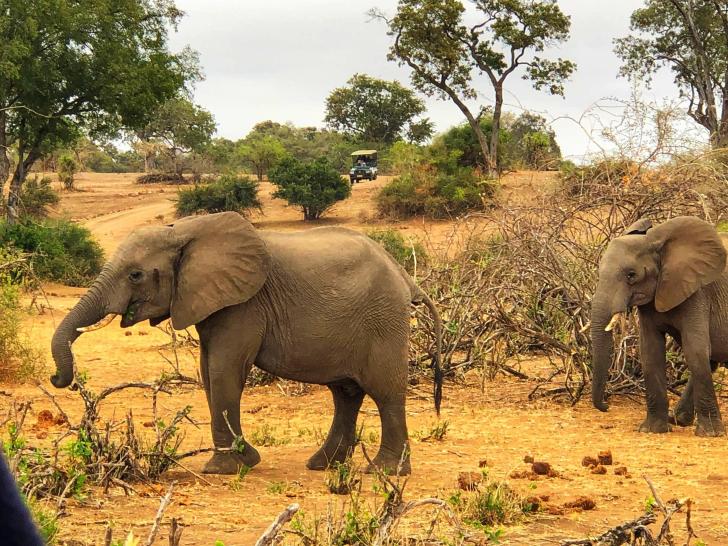News / National
Elephants terrorise Tsholotsho communities
28 Nov 2024 at 06:48hrs |
0 Views

Villagers in Tsholotsho North are living in fear as elephants in search of food and water invade their communities, destroying property and disrupting daily life.
Tsholotsho North legislator Libion Sibanda said the elephants were causing havoc, particularly in wards 7, 8, and 21.
"We have a challenge in our area as people are now afraid to move freely, especially at night because of elephants," said Sibanda.
The situation has reportedly overwhelmed the Tsholotsho Rural District Council (RDC) rangers tasked with managing the animals.
"We appeal to Tsholotsho RDC to find a way to drive the elephants back to the national parks for the safety of our lives as villagers," he added.
Impact on Education and Livelihoods
The elephants' presence is also affecting learners, with some missing classes due to the animals' movements, according to Ward 8 councillor Jazz Sibanda.
In response, Tsholotsho RDC chairperson Rophas Ndlovu said they had taken measures to address the problem, including driving some elephants back to national parks and culling two of the animals.
"The meat was distributed among the affected community," said Ndlovu, adding that some elephants were migrating from as far as Botswana.
Rising Jumbo Population Sparks Conflict
Zimbabwe's elephant population has surged to over 90,000, more than double the sustainable capacity of 45,000, according to the Zimbabwe Parks and Wildlife Management Authority. The increase has led to frequent human-wildlife conflicts, particularly in rural areas like Tsholotsho.
Government recently announced plans to cull 200 elephants to address the growing population, a move seen as necessary to reduce the pressure on communities.
However, the ban on culling and ivory trade under the Convention on International Trade in Endangered Species (CITES) remains a challenge, with officials citing the restrictions as a factor behind the ballooning numbers.
Villagers are appealing for swift and effective measures to protect their lives, property, and livelihoods amid the escalating human-animal conflict.
Tsholotsho North legislator Libion Sibanda said the elephants were causing havoc, particularly in wards 7, 8, and 21.
"We have a challenge in our area as people are now afraid to move freely, especially at night because of elephants," said Sibanda.
The situation has reportedly overwhelmed the Tsholotsho Rural District Council (RDC) rangers tasked with managing the animals.
"We appeal to Tsholotsho RDC to find a way to drive the elephants back to the national parks for the safety of our lives as villagers," he added.
Impact on Education and Livelihoods
The elephants' presence is also affecting learners, with some missing classes due to the animals' movements, according to Ward 8 councillor Jazz Sibanda.
In response, Tsholotsho RDC chairperson Rophas Ndlovu said they had taken measures to address the problem, including driving some elephants back to national parks and culling two of the animals.
"The meat was distributed among the affected community," said Ndlovu, adding that some elephants were migrating from as far as Botswana.
Rising Jumbo Population Sparks Conflict
Zimbabwe's elephant population has surged to over 90,000, more than double the sustainable capacity of 45,000, according to the Zimbabwe Parks and Wildlife Management Authority. The increase has led to frequent human-wildlife conflicts, particularly in rural areas like Tsholotsho.
Government recently announced plans to cull 200 elephants to address the growing population, a move seen as necessary to reduce the pressure on communities.
However, the ban on culling and ivory trade under the Convention on International Trade in Endangered Species (CITES) remains a challenge, with officials citing the restrictions as a factor behind the ballooning numbers.
Villagers are appealing for swift and effective measures to protect their lives, property, and livelihoods amid the escalating human-animal conflict.
Source - newsday
Join the discussion
Loading comments…
































